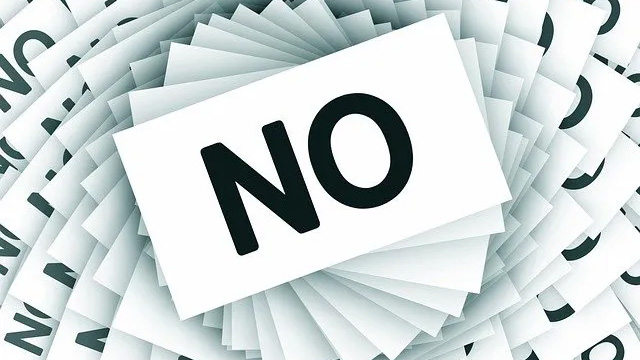
In a world that celebrates hustle, helpfulness and constant availability, the simple act of saying no has become one of the hardest things to do. Many people, especially women and those raised to prioritise harmony struggle to refuse requests, even when they feel overwhelmed or uncomfortable.
Saying no often feels synonymous with being selfish, rude or unkind. Yet, in truth, the inability to say no is one of the biggest threats to personal well-being, productivity and self-respect. The burden of constantly agreeing to everything to be a team player, to be selfless comes at the price of choosing yourself by saying no when you need it.
Learning the art of saying no is not about rejection; it is about alignment. It means choosing yourself, your values, and your peace over constant people-pleasing. Boundaries are not walls to shut others out, but they are bridges that teach people how to treat you while protecting your mental and emotional energy.
Why saying no feels so difficult
From a young age, most of us are conditioned to please others, and I have personally noted this as a huge part of Africanism, maybe a misplaced extension of buntfu. We are rewarded for being obedient, helpful and agreeable. At school, at work and in relationships, saying yes is equated with being a team player or a ‘good person’.
This conditioning, however, often creates adults who struggle to set boundaries, fearing disapproval or rejection. Psychologically, humans are wired for belonging. We want to be liked and accepted, and the fear of disappointing others can be powerful enough to override our own needs.
When someone asks for a favour, we may instinctively agree even if it inconveniences us because the short-term discomfort of saying no feels worse than the long-term consequences of saying yes.
The problem is that this constant compliance comes at a cost. Over time, chronic people-pleasing leads to burnout, resentment, and loss of identity. Saying yes to everything means saying no to your own priorities, and that imbalance slowly erodes self-trust and confidence.
Understanding boundaries as self-respect
At its core, setting boundaries is an act of self-respect. It is a way of saying, “My time, energy and emotions are valuable, and I choose where they go.” Boundaries are not selfish, they are necessary for healthy relationships and sustainable living. When you say no, you are not rejecting the person, but you are simply declining the request. Healthy boundaries actually strengthen relationships because they are rooted in honesty.
People who respect you will not be offended by your limits; they will appreciate your clarity. Without boundaries, relationships often become imbalanced. The person who always says yes becomes emotionally exhausted, while others may unintentionally take advantage of their generosity. Boundaries restore equilibrium, ensuring that giving and receiving remain mutual and respectful.
The psychology of guilt
One of the biggest barriers to setting boundaries is guilt. Guilt convinces us that prioritising ourselves is wrong or unkind. Many people feel they must justify their ‘no’ with elaborate explanations or apologies to ease the discomfort. Yet, guilt often stems from unrealistic expectations rather than moral wrongdoing. When you start enforcing boundaries, guilt is natural because you are breaking long-standing patterns of overextending yourself. The key is to recognise that feeling guilty does not mean you are doing something wrong but it means you are doing something new. Over time, that guilt fades and is replaced by confidence and peace.
Why boundaries benefit everyone
Boundaries are not only good for the individual but also for the collective. When you model healthy limits, you give others permission to do the same. You show that it is possible to be kind without being self-sacrificing, and helpful without being depleted.
In the workplace, boundaries prevent burnout and improve efficiency. An employee who can say no to unnecessary tasks is better equipped to focus on meaningful work. In personal relationships, boundaries create trust and reduce resentment. Friends, partners and family members know what to expect and learn to respect your time and space.
Boundaries also enhance self-awareness. Each time you assert one, you learn something about your values and capacity. You begin to recognise what drains you and what fulfils you, allowing you to make more intentional choices in the future.
Unlearning the need to please
Saying no requires unlearning the belief that self-worth is tied to usefulness. You do not have to be everything to everyone to deserve love or respect. True self-worth comes from authenticity, living in alignment with your needs and values, even if it means disappointing others. It’s important to remember that every ‘no’ creates space for a more meaningful ‘yes’. When you stop scattering your energy across obligations that don’t serve you, you create room for relationships, projects and opportunities that do. Boundaries are not about restriction they are about direction.

Saying no often feels synonymous with being selfish, rude or unkind. (Pic: Wishingwell Coaching with Jessica Sweet)